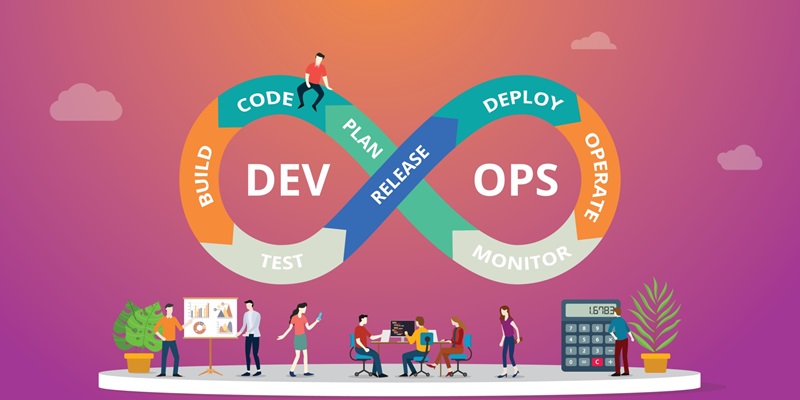DevOps has revolutionized software development, paving the way for frequent software releases. Gone are the days of big-bang deployments every 12 months, as DevOps has ushered in an era of releasing software multiple times per day. However, even in mature DevOps settings, teams encounter persistent challenges related to cultural and organizational differences, automation complexity, cross-team collaboration, consistency, and standardization. In this article, we will delve into these challenges and explore strategies and technologies to effectively overcome them.
Navigating Cultural and Organizational Differences
In a mature DevOps environment, the impact of cultural and organizational differences can pose significant challenges. Each team may have its own set of values, practices, and ways of working, making alignment and collaboration difficult. To overcome these challenges, it is crucial to foster a culture of open communication, mutual understanding, and respect. Encouraging cross-functional collaboration, facilitating knowledge sharing, and providing training and educational opportunities can help bridge the gap and create a shared DevOps culture.
Coping with Automation Complexity
Automation is one of the pillars of successful DevOps practices. However, in a mature DevOps environment, the complexity of automation can become a significant day-to-day challenge. Multiple systems, tools, and processes can lead to confusion and inefficiencies. To manage this complexity, it is important to establish a clear automation strategy, streamline processes, and invest in robust automation tools. Regular evaluation and optimization of automation workflows can further enhance efficiency and reduce complexity.
Cross-Team Collaboration
Effective cross-team collaboration is vital for DevOps success, but it can be challenging to achieve in day-to-day operations. Siloed teams, communication barriers, and conflicting priorities can hinder collaboration efforts. Implementing agile methodologies, establishing cross-functional teams, and adopting collaborative tools and technologies can facilitate effective communication and teamwork. Encouraging open and transparent communication channels and fostering a culture of shared responsibility can further strengthen collaboration.
Consistency and Standardization
Maintaining consistency and standardization across various projects and teams is a significant challenge for mature DevOps teams. Divergent practices, uncoordinated processes, and varying definitions of quality can lead to inconsistencies, rework, and decreased productivity. To address this challenge, standardizing processes, documenting best practices, and implementing quality control measures are essential. Automation and continuous integration/continuous delivery (CI/CD) pipelines can further ensure consistency throughout the software development lifecycle.
The Role of Chaos Engineering Platforms
Chaos engineering platforms aim to save DevOps teams from unforeseen surprises by embracing the philosophy of “breaking things on purpose.” These platforms simulate real-world failures and disruptions to test system resilience and identify vulnerabilities. By proactively testing and strengthening systems, DevOps teams can ensure robustness and deliver more reliable and stable applications.
Application Dependency Mapping (ADM) in DevOps
Application Dependency Mapping (ADM) is a process that helps DevOps teams visualize and understand their applications and their dependencies. By mapping out the relationships and dependencies between components, services, and infrastructure, teams can gain valuable insights into the impact of changes and make informed decisions. ADM tools also assist in troubleshooting, optimizing performance, and identifying potential security risks.
Embracing Policy-as-Code in DevOps
Policy-as-code is a practice where policy definitions are codified and managed as code files within version control systems. This approach ensures consistency, scalability, and auditability of policies across the DevOps lifecycle. By eliminating manual enforcement and enabling automated compliance checks, policy-as-code strengthens security, reduces risks, and streamlines governance processes.
Adoption of Service Mesh Technologies in DevOps
Service mesh technologies offer a range of features that can save time for DevOps teams. Service meshes provide a dedicated infrastructure layer for managing communication and interaction between microservices. They offer capabilities such as traffic management, service discovery, load balancing, and observability. By offloading these responsibilities to the service mesh, DevOps teams can focus on developing and delivering applications more efficiently.
Codeless test automation tools in DevOps represent a significant shift in the way teams approach software testing. Traditional test automation often requires extensive coding expertise, creating a bottleneck and hindering agility. Codeless tools provide a more efficient and less time-consuming method by offering user-friendly interfaces, drag-and-drop functionality, and visual test design. With codeless test automation, teams can accelerate testing cycles, increase test coverage, and improve overall software quality.
In mature DevOps environments, challenges related to cultural differences, automation complexity, collaboration, consistency, and standardization are common. However, by understanding these challenges and implementing appropriate strategies and technologies, teams can overcome obstacles and optimize their DevOps practices. Continuous adaptation, improvement, and embracing the right tools and approaches are key to thriving in the ever-evolving world of DevOps.

